Edie Melson's Blog, page 168
March 29, 2021
Mini Memoir Moment: Me—Ways to Write about Yourself

by Marcia Moston @MarciaMoston
I know “notorious badman” Sam Bass didn’t write his own “Wanted Dead or Alive” poster, but I couldn’t resist using the description of him with its surprising last sentence to make a point for this lesson. The fine print on the poster reads:
A handsome young man, 5’7” tall, with sandy-brown hair, black eyes, light complexion, and large even teeth. He sometimes wears a sandy-brown mustache. He is a poor dresser.
Ha! Bass sounds so appealing at the start—so dapper for a train robber. But then all that handsomeness is betrayed by his mismatched? sloppy? apparel. A dead giveaway as far rich train robbers go, apparently.
By nature we are complex and contradictory creatures. Our emotions and behaviors are not always consistent with what we usually present to the world: When riled, the sweet-faced, elderly neighbor comes out with an expletive that makes the cat cringe. The hardened ex-gangster secretly rescues abandoned kittens. None of us are a one-note song.
Whether writing about yourself or anyone else, it’s important to be real on the page. As P. G. Wodehouse says, I’m not always good and noble. I am the hero of this story, but I have my off moments. That’s not to say you have to spill all your sordid secrets, but there are ways to use self-deprecating humor to present some of the less flattering aspects that make you the human you are.
This Boy’s Life by Tobias Wolff is his coming-of-age story. Constantly on the run with his mom, suffering at the hands of a mean stepfather, Wolff learns to survive—by hook or by crook. The book opens with the following scene, important for how it reveals the crafty aspect of his character that he relies on to get through some of the treacherous terrain he travels on the way to self respect and identity. Note how guilelessly he presents this unflattering moment and how much it tells us about him. Can’t many of us relate to that enterprising moment in childhood when we knew mom/dad was weak?
Our car boiled over again just after my mother and I crossed the Continental Divide. While we were waiting for it to cool, we heard from somewhere above us, the bawling of an airhorn. The sound got louder and then a big truck came around the corner and shot past us into the next curve, its trailer shimmying wildly. We stared after it. “Oh, Toby,” my mother said, “he’s lost his brakes.”
The sound of the horn grew distant, then faded into the wind that sighed in the trees all around us.
By the time we got there. Quite a few people were standing along the cliff where the truck went over. It had smashed through the guardrails and fallen hundreds of feet though empty space to the river below, where it lay on its back among the boulders. It looked pitifully small. A stream of thick black smoke rose from the cab, feathering out into the wind. My mother asked whether anyone had gone to report the accident. Someone had. Nobody spoke. My mother put her arm around my shoulder.
For the rest of the day she kept looking over at me, touching me, brushing back my hair. I saw that the time was right to make a play for souvenirs. I knew she had no money for them, and I had tried not to ask, but now that her guard was down I couldn’t help myself. When we pulled out of Grand Junction I owned a beaded Indian belt, beaded moccasins, and a bronze horse with a removable, tool-leather saddle.
In her book Home Cooking: A Writer in the Kitchen, Laurie Colwin contrasts herself to others. She let’s us know who she is by telling us who she isn’t:
Unlike some people who like to go out, I love to stay home. This may be caused by laziness, anxiety, or xenophobia, and in the days when my friends were happily traveling to Bolivia and Nepal . . . what I liked best was hanging around the house.
I am probably not much fun as a traveler, either. My idea of a good time abroad is to visit someone’s house and hang out, poking into their cupboards if they will let me.
Who you are on the page and what you present depends on your audience and your intent for the story. What you would write for your grandchildren would probably be different from what you would write for a war journal.
In her Great Courses class, Writing Creative Nonfiction, Professor Tilar Mazzeo uses dating ads as an example for honing the details you would use about yourself to interest a partner. Think about what the following ads reveal about each person:
SWEET LADY, mother and now grandmother. Interesting and interested in the world. Scientist, birdwatcher, intrigued by beautiful art and smart people. Still loves fast cars. Active mind. Decent soul. Hopes to meet accomplished, responsible, sensible, hopelessly handsome man for good laughs and much merriment.
ECCENTRIC EUROPEAN ADVENTURER, 72, former revolutionary, award-winning artist, trim, brilliant, lives part-time in Africa, part-time in France, married, seeks permanent mistress or second wife in complete agreement with the first. Requirements: 30-40, sensual, talented, open-minded.
SEXY LADY needs one decent guy: witty, responsible, available. So we can dream about all the things we once believed in and make love again like teenagers. In my mind, I will be young and beautiful. If you close your eyes, you will be too. We will dream together and you will read children’s stories and The Economist to me. All night, we will touch fingers and dream of soaring. Me, late 40s. You, as young as you wish to be.
Your Turn:
1. Write your own Wanted poster. Model the description on Bass’s: Physical description followed by a one-line surprise.
2. Write about a specific time when something happened that you took advantage of to get what you wanted.
3. Make your own personals ad. Write one for a date, one for a job, one for your public media face. Notice how you have to fine-tune each of the adjectives depending on the purpose and audience.
Blessings,Marcia
TWEETABLEMini Memoir Moment: Me—Ways to Write about Yourself - @MarciaMoston on @EdieMelson (Click to Tweet)
 Marcia Moston loves to write, teach, and talk about the possibilities of an ordinary life in the hands of an extraordinary God. She has contributed to several magazines, anthologies, and newspapers, and teaches narrative nonfiction with the OLLI at Furman program. She’s the author of Call of a Coward—the God of Moses and the Middle-Class Housewife and Going South –with the God of Jacob’s and My Mistakes.
Marcia Moston loves to write, teach, and talk about the possibilities of an ordinary life in the hands of an extraordinary God. She has contributed to several magazines, anthologies, and newspapers, and teaches narrative nonfiction with the OLLI at Furman program. She’s the author of Call of a Coward—the God of Moses and the Middle-Class Housewife and Going South –with the God of Jacob’s and My Mistakes.
March 28, 2021
Why and How Writers Should Use Pinterest

by Edie Melson @EdieMelsonThis burgeoning network has become a great network for writers to connect with readers and grow their online visibility. These are some basic Pinterest tips for writers to help you capitalize on its value.
Pinterest is an image driven network that allows users to pin images from the web to virtual bulletin boards. It’s more important to consider Pinterest a visual search engine rather than a place where users engage in conversation. This platform has taken off in recent months and is the best platform for click-throughs. Users are no longer primarily women. Men and all large brands have a substantial presence here.
This platform uses virtual bulletin boards to curate interesting online content. These boards are viewed by other users and posts are pinned and repined. The growing stats for Pinterest users are amazing—and not just for writers who are geared up to market and promote a new book.
Pinterest has the highest percentage of click-throughs for any social media network. Pinterest users look at a pin and click through to the website more often than clicking from any other site. This makes Pinterest incredibly valuable to writers and authors.
This network also has the longest life for a social media post than any other platform.
There are various stats out there, but this is a good ballpark comparison:
Twitter—18 minutes Facebook—30 minutes Instagram—19 hours LinkedIn—24 hours YouTube—6 days Pinterest—4 monthsPinterest is also the ultimate in show-don’t-tell for writers. Here writers aren’t limited to just four branding streams, we can share all the things we love by creating many different boards.
Writers can also show their individuality by creating boards that include their hobbies and enthusiasm for other pursuits, allowing transparency and insight into a writer’s life. Readers are able to explore their favorite writers better by focusing on what sparks our attention. It also gives us different connection points with potential readers.
Go to www.pinterest.com and sign up for a business account. If you already have a personal account, CONVERT it to a business account. (click on settings, then account settings and scroll to the bottom to see where you can convert your account to a business account.) You won’t lose anything in the transition, and with the business account you can track analytics, monthly views, and have access to other valuable resources.
Fill in all the information:
Avatar Bio WebsiteTips for Pinterest
Make sure you switch your account to a business account. You won’t lose anything in the transition, but you will gain a great deal in analytics and functionality.
Optimize your name (description is key, but make it interesting). If you have a ministry and/or a business, but you also are an author, make sure your account is set up under your name. (Mine is Edie Melson).
Spend time composing your Pinterest bio. It should be interesting and contain keywords that will be picked up in a generic search. For instance, my bio mentions that I’m a “creative” “photographer” and “author”. All popular searches on Pinterest.
As you build your Pinterest world, remember that you are sharing a visual story. This is an image driven network and your popularity will hinge on how well you present the visual aspect of your content.
Approach your Pinterest account like you are publishing a magazine. Every board is a “feature” in your magazine. Consider your colors you use and the visual story you want to tell.
Take time to organize your boards.
Consider the order they are in on your homepage. In addition:
Name each board. Give it a name that someone might type into the search box to find the content of your board.Make sure you have designated an image as a cover for every board. Fill in the description and type of board. Add two or three relevant hashtags to the end of each board’s description. Yes, hashtags are a thing on Pinterest too.Use the search box strategically to find trending topics and share appropriate pins.
When users click on the search box, they find several groups of searches:
Recent Suggested PopularThe popular is the most valuable. These are posts that are trending right now. Try to pin on or two things from this category to keep your visibility up.
Use the free templates in Canva or PicMonkey to make your own pins. Remember though the largest majority of things you pin should be from others. I use a 10 to 1 rule of thumb. 10 pins from others to 1 pin from me. But it’s NOT considered poor form to share multiple pins in a row. For example, if I’m working on a new board for my blog posts, it would be fine for me to pin a lot of my own stuff to populate the board. Use this as a rule of thumb, not an inflexible rule.
Spend time weekly pinning things you love. The more you’re on Pinterest, the more your visibility will grow.
This is a social media network to enjoy. Take time to follow boards and people you enjoy.
TWEETABLE
Why and How Writers Should Use Pinterest - @EdieMelson (Click to Tweet)
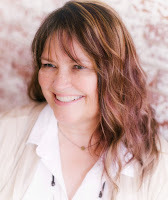 Edie Melson is a woman of faith with ink-stained fingers observing life through the lens of her camera. No matter whether she’s talking to writers, entrepreneurs, or readers, her first advice is always “Find your voice, live your story.” As an author, blogger, and speaker she’s encouraged and challenged audiences across the country and around the world. Her numerous books reflect her passion to help others develop the strength of their God-given gifts and apply them to their lives.Connect with her on her website, through Facebook, Twitter and on Instagram.
Edie Melson is a woman of faith with ink-stained fingers observing life through the lens of her camera. No matter whether she’s talking to writers, entrepreneurs, or readers, her first advice is always “Find your voice, live your story.” As an author, blogger, and speaker she’s encouraged and challenged audiences across the country and around the world. Her numerous books reflect her passion to help others develop the strength of their God-given gifts and apply them to their lives.Connect with her on her website, through Facebook, Twitter and on Instagram.
March 27, 2021
Make Writing Your Ministry—Not Just a Career or a Hobby

Edie here. Guys I've got to tell you, we have the MOST amazing contributors here at The Write Conversation, and it just keeps getting better. Today I'm announcing our newest columnist, Dr. Craig Von Buseck. This man has had such an impact on my writing life! He has inspired me through classes I've taken from him and from the way he lives out what he teaches. I know you're going to be as blessed as I am. Give him a warm, TWC welcome (and check out his newest book, Victor! The Final Battle of Ulysses S. Grant - info at the end of the post).
Make Writing Your Ministry—Not Just a Career or a Hobbyby Craig Von Buseck @CraigVonBuseck
“Give me 26 lead soldiers and I will conquer the world.”
This famous quote has been attributed to Benjamin Franklin. Ironically, it has also been ascribed to Karl Marx. Both of these men succeeded in conquering the world with those 26 lead soldiers – the alphabet – for good and for evil.
The words we write have power and God can truly use them to change the world. As reformer Martin Luther said: “If you want to change the world, pick up a pen.”
I first sensed a call from God to help in changing the world during my senior year of high school. In those days, the members of my church youth group would sit in the balcony during Sunday services. I vividly remember many Sunday mornings when I could ‘see’ the biblical stories the pastor was preaching in my mind like watching a movie.
From those experiences I came to realize that part of my calling was to tell stories so that other people could ‘see’ the same things I had seen and know this God of love. I decided to pursue further education and enrolled in the Divinity School at Regent University with the purpose of becoming a pastor. I had been influenced by several pastors who were also writers – folks like Max Lucado, Jamie Buckingham, and Chuck Swindoll. So I immediately looked for a writing course to take as an elective. Everyone told me to take Bob Slosser’s class, The Craft of Good Writing.
A problem arose in that I was a Divinity student and this class was offered in the Communication school. The faculty secretary chuckled at my request to take this course, explaining that Bob limited the enrollment to 15 and all the Com students clamored to get in. Knowing what God had put in my heart I confronted the challenge. “Please add my name to the list and let’s see what God will do,” I responded.
A week later I received the call from the perplexed faculty secretary. “I can’t explain it, but somehow you got into Dr. Slosser’s class.”
I learned later that a class required for graduation was scheduled at the same time as Bob’s course. All the Com students who wanted to graduate that spring had to take the other class, opening the door for me to get in.
As some of my friends would say, “Look at God!”
I was truly blessed to have this opportunity. I learned that Bob Slosser had been a New York Times reporter and editor. After an encounter with God, Bob moved to Virginia where he became a leader with the Christian Broadcasting Network. Bob co-wrote Pat Robertson’s best-selling book, ‘The Secret Kingdom.’ Later, Bob would serve as president of CBN University, which would become Regent University.
Health issues forced Bob to step down as president and now he focused on training up Christian writers to change the world. As I sat in his memorable class, Bob would exhort us to make an impact with our craft. “Don’t just make writing a career or a hobby,” he implored. “Make writing your ministry.”
There it was again—the call. It was confirmed through this talented old wordsmith.
By this time, I had completed nearly a year of my Divinity coursework, but I knew I needed to also grow in my writing. I discovered that Regent offered a joint degree called Religious Journalism, where you did a little bit more than a year in each school. By entering this program I could get the further training in communication and writing I needed.
Entering this program would mean extra schooling and tuition costs than I had originally planned. I decided to seek Bob’s advice. His answer was like a prophetic arrow to my heart.
“There are a lot of right-thinking pastors out there (meaning biblically-thinking),” he said with a gentle passion. “There are a lot of right-thinking missionaries and Bible school professors,” Bob continued. “But there are NOT a lot of right-thinking writers and communicators. If this is what you believe God is telling you to do, I want to support it however I can.”
When I tell this story in writers conferences or small groups, some people respond: “But there is so much competition. What did Bob mean by saying there are not a lot of Bible believing writers?”
I answer by explaining that it depends on how you see the pool of truly Christian writers and the number of people in the world. I have been following the statistics for more than 20 yearsand they are sobering.
The current population estimate for planet earth is nearly 7.9 billion people. According to the most recent Pew Research study, the estimated number of Christians is approximately 2.3 billion.
That means that there are at least 5.6 billion people on earth who do not know Jesus. That number continues to skyrocket, while the number of Christians has remained nearly the same for the last decade.
If we truly want to see the world change, there isn’t any REAL competition for us as Christian writers. These population numbers make it clear that Bob’s statement to me was correct—there are NOT a lot of right-thinking writers and communicators compared to the need for those lost in darkness to see the light of Jesus.
So make writing your ministry—and use those 26 lead soldiers to change the world.
TWEETABLEMake Writing Your Ministry—Not Just a Career or a Hobby - @CraigVonBuseck on @EdieMelson (Click to Tweet)
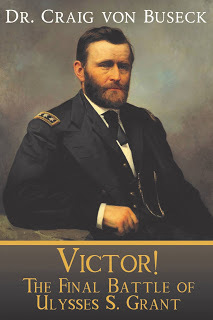 Watch for Craig’s new book, Victor! The Final Battle of Ulysses S. Grant – Order your copy at GrantVictorBook.com
Watch for Craig’s new book, Victor! The Final Battle of Ulysses S. Grant – Order your copy at GrantVictorBook.comVictor! offers a unique narrative approach allowing readers to hear the voice of a dying General Grant as he writes his memoirs and takes readers back in time to key turning points in the War Between the States Vicksburg, The Wilderness, Cold Harbor, and ultimately, Appomattox. As Grant is constantly jarred back to the present pain, exhaustion, and sadness as he slowly dies of cancer, readers will be inspired by his courage and tenacity to persevere in adversary to achieve victory in the struggles of their own lives.
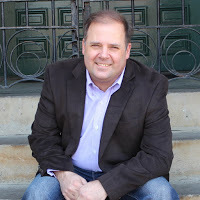 Dr. Craig von Buseck is an award winning author and the Managing Editor for Inspiration.org. Learn more at vonbuseck.com.
Dr. Craig von Buseck is an award winning author and the Managing Editor for Inspiration.org. Learn more at vonbuseck.com.
March 26, 2021
Creating Heroes: Ten Ways to Reveal the Heroic Qualities of Your Character in Story (Part 2)

by Zena Dell Lowe @ZenaDellLowe
In part 1 of this blog post, we discussed the first five things that you can do as a writer to help reveal the character qualities that a true hero must possess. (Link at the end of the post) Today, we’ll discuss the final five.
6. Make it cost something.
For your main character to win, there must be a price, a personal cost to be paid. We've seen this over and over again with various characters. They have to be willing to make the hard sacrifice in order to win. Otherwise, nothing was risked. Nothing was at stake. There was no choice to be made. And their victory at the end has no value. In order for the victory to mean something, it needs to have cost them something of value and importance.
7. They must be merciful or compassionate.
I don’t mean in a single moment. I mean, at their core, they are a person who possesses mercy or compassion. Empathy. In fact, empathy is perhaps the most noble character trait of all. Without it, we would never experience anything good, such as mercy, forgiveness, or grace. You need to show that your heroic character possesses this quality in their soul. Of course, there are a variety of ways to accomplish this, but in essence, you need to SHOW us. We need to see them act compassionately towards somebody that would otherwise be deemed lesser than them or below them in the pecking order. Perhaps somebody over whom they have power, or someone society at large has discarded. This is a very important character quality to reveal for any hero. Any character who treats someone who is an underling with gentle kindness and respect, inevitably displays that they indeed deserve to pick up the mantel of “Hero”.
8. Make their mission matter.
What I mean by that is, you need to up the stakes. Whatever it is that they're after, everything depends on it. It needs to matter to them, personally, but it also needs to matter to the audience. We need to feel like it's important that they accomplish whatever it is they're pursuing. Otherwise, what’s the point of the story? If it doesn't matter to us, the story itself doesn't matter. To help with this, make sure, as we ramp up to the climax, that we see the importance of the mission in terms of the character’s ultimate fate. For example, if they fail, we know they will be “die,” one way or the other. It may not be literal death. Perhaps it’s a spiritual or relational death. Whatever the case, it is truly do or die. It's all or nothing. They either win or all is lost. There is no room for half measures. The fate of everything comes down to this moment and there will never be another chance for your character to win.
9. They show remorse when they mess up.
There's nothing worse, in real life, or in story, when a character denies blame, justifies wrong-doing, tries to blame someone else, or minimizes the harm he or she has caused. Anyone who refuses to admit to their failures cannot be a truly heroic character. Along with empathy, one of the most important characteristics of a person who is worthy of respect is that they own their mistakes. They feel bad, but not just bad, they’re repentant in their spirit. This means that they're truly remorseful, which means that they’ve “turned away” from whatever wrong beliefs or wrong actions caused them to fail in the first place. They're absolutely committed to not repeat those mistakes in the future and they can recognize and acknowledge how badly they messed up. They might even be haunted by their prior failures, which makes them all the more determined to atone for those mistakes by not making it ever again. Which, of course, may or may not be possible, depending on what the true lesson is that they need to learn.
10. Finally, let them be afraid.
Whatever it is that your character is facing, they need to truly fear. It might be because their very life is at stake, or perhaps it's the lives of others that could be lost if they fail. Whatever it is, however, there is no courage without fear. And whether you choose for them to hide it from the other characters in the story or not, we, the audience, need to see that they are truly afraid. That way, when we see them face their dilemma anyway, it not only makes your character more noble, but also more sympathetic and worthy of our devotion. So if you want your audience to fall in love with your hero, show us that he is afraid. It makes your character instantly accessible, likeable and sympathetic, and your audience will be emotionally invested in the outcome.
There is so much more I could say about each of these items since we’ve only just begun to scratch the surface However, hopefully these points incite your imagination and help you see how these traits might be able to be portrayed to heroic effect. Bottom line, if you want to construct heroic characters that your audience will be attracted to and feel emotionally invested in for the duration of the story, these are some of the primary characteristics you should strive to display over the course of the telling. Good luck!
For more tips like this, check out The Storyteller's Mission with Zena Dell Lowe, a podcast for artists and storytellers about changing the world for the better through story. New episodes available every Thursday on the podcast app of your choice. www.thestorytellersmissionpodcast.com. Also, check out The Storyteller's Mission online platform at www.thestorytellersmission.com where you can find classes, services, and resources for writers.
Until then, may you go forth inspired to change the world for the better through story.TWEETABLECreating Heroes: Ten Ways to Reveal the Heroic Qualities of Your Character in Story - @ZenaDellLowe on @EdieMelson (Click to Tweet)
Don't Miss the Rest of This Series!Creating Heroes: Ten Ways to Reveal the Heroic Qualities of Your Character in Story (Part 1)
 Zena Dell LoweAward-winning Filmmaker, Speaker, Teacher, Story Coach, and Podcast Host
Zena Dell LoweAward-winning Filmmaker, Speaker, Teacher, Story Coach, and Podcast Host Zena has worked professionally in the entertainment industry for over 20 years as a writer, producer, director, actress, and story consultant. Zena also teaches advanced classes on writing all over the country. As a writer, Zena has won numerous awards for her work. She also has several feature film projects in development through her independent production company, Mission Ranch Films. In addition to her work as a filmmaker, Zena launched The Storyteller’s Mission with Zena Dell Lowe, a podcast designed to serve the whole artist, not just focus on craft. In 2021, Zena launched The Storyteller’s Mission Online Platform, where she offers advanced classes and other key services to writers. Zena loves story and loves to support storytellers. Her passion is to equip artists of all levels to achieve excellence at their craft, so that they will truly have everything they need to change the world for the better through story.
To find out more about Zena or her current courses and projects, check out her websites at www.missionranchfilms.comand www.thestorytellersmission.com
March 25, 2021
In the Writing World, Are You a Moses or an Aaron?

By Lori Hatcher @LoriHatcher2 Some compare writing a book (or a blog post, an article, or a poem) to giving birth. Others use the more picturesque description of a journey or a path. The most honest among us refer to it as a battle.
Moses, the author of five books of the Bible, knew about writing—and about battles. Exodus 17 describes a skirmish the Israelites had with the Amalekites.
“Moses said to Joshua, ‘Choose some of our men and go out to fight the Amalekites. Tomorrow I will stand on top of the hill with the staff of God in my hands.’
“So Joshua fought the Amalekites as Moses had ordered, and Moses, Aaron and Hur went to the top of the hill. As long as Moses held up his hands, the Israelites were winning, but whenever he lowered his hands, the Amalekites were winning.
“When Moses' hands grew tired, they took a stone and put it under him and he sat on it. Aaron and Hur held his hands up—one on one side, one on the other—so that his hands remained steady till sunset” (Ex. 17:9-12).
In the writing life, sometimes God calls us to be a Moses. Other times He calls us to be an Aaron.
Most of us have at least one Moses in our writing circles—the one with a bestselling book (or three), a platform big enough to support Texas stadium, and a heart to match it. They organize conferences and write books on craft. They lead the way by their faith and example. They forge paths in the writing wilderness.
We want to hate them, but we can’t. They’re just too darn loveable.
Sometimes, we get to be a Moses—on a smaller scale. Our freelance writing gets noticed by a publisher. Someone invites us to speak at a women’s retreat. The book we’ve been laboring over for years finally gets contracted.
Most of the time, however, we’re Aarons. Aaron introduced Moses to the leaders of Israel and vouched for his credibility. He held Moses’ staff and stood beside him as he approached Pharaoh. He counseled him as he led others. He held up Moses’ arms when he grew weary.
Aarons in the writing world offer support and share resources. They introduce their friends to their contacts and vouch for their writing ability. They stand beside them as they approach editors and publishers. They share their friends’ posts, recommend their articles, and help them with their social media. Aarons bring balloons and chocolate when the contract finally appears and bake cupcakes for the book launch.
Aarons lift their friends’ hands to the keyboard when they’re too discouraged to type another word. They support them with their unflagging belief in their writing. They refuse to let them quit.
Sometimes God calls us to be a Moses, perched at the top of the mountain with God’s glory shining around us. Other times He calls us to be an Aaron, standing beside a friend in the midst of a writing battle and holding up their weary arms.
Both roles are honorable. Both roles advance God’s kingdom. Both roles make God smile.
TWEETABLE
In the Writing World, Are You a Moses or an Aaron? - @LoriHatcher2 on @EdieMelson (Click to Tweet)
 Lori Hatcher loves God even more than she loves chocolate—and that’s a lot. Since He saved her at age 18, she’s been on a relentless journey to know and love Him more. Her deepest desire is for her others to join her on the journey. As an author, blogger, and women’s ministry speaker, she writes for Our Daily Bread, Guideposts, Revive Our Hearts, andCrosswalk.com. She’s written three devotional books, including
Refresh Your Faith, Uncommon Devotions from Every Book of the Bible
, and
Hungry for God…Starving for Time, Five-Minute Devotions for Busy Women
. Connect with her at LoriHatcher.com or on Facebook, Twitter (@lorihatcher2) or Pinterest (Hungry for God).
Lori Hatcher loves God even more than she loves chocolate—and that’s a lot. Since He saved her at age 18, she’s been on a relentless journey to know and love Him more. Her deepest desire is for her others to join her on the journey. As an author, blogger, and women’s ministry speaker, she writes for Our Daily Bread, Guideposts, Revive Our Hearts, andCrosswalk.com. She’s written three devotional books, including
Refresh Your Faith, Uncommon Devotions from Every Book of the Bible
, and
Hungry for God…Starving for Time, Five-Minute Devotions for Busy Women
. Connect with her at LoriHatcher.com or on Facebook, Twitter (@lorihatcher2) or Pinterest (Hungry for God).
March 24, 2021
For Writers, Effective Communication…

by Henry McLaughlin @RiverBendSagas
…Or not so effective communication.
Back in the 1960s, we had what’s called the Cuban Missile Crisis. The Russians placed missiles in Cuba, which could easily reach many cities in the United States. Our government could not tolerate such a threat and we demanded the Russians remove the weapons. The situation escalated to where war appeared imminent. Russian Premier Khrushchev sent President Kennedy a letter saying his country would comply. A short time later, Khrushchev sent another letter saying the exact opposite and almost dared us to come take his missiles.
What to do?
In a brilliant strategic move, President Kennedy acted as if he never received the second letter and accepted to the first letter. Khrushchev removed the missiles. We avoided war.
Sometimes, choosing to ignore the parts we don’t like can be a good communication strategy. This is a very simplistic explanation of what happened—millions of words have been written about the crisis—but it illustrates my point in this blog.
Effective communication depends on so much more than the words we speak or write.
We often read meanings into words that aren’t there. Sometimes I’ve missed words in a document or rearranged them in my reading or added words without realizing it. And, sometimes, the other person didn’t write clearly. Ever read assembly instructions originally written in Japanese or Chinese that were translated word for word into English? That’s an adventure in untwisting word pretzels.
In today’s favorite forms of written communication, emails and text messages, tone and meaning can get lost in emojis, autocorrect, and being in a hurry to respond. The person sending the message thinks they’re being clear and concise. But when we receive it, what comes across is anger or sarcasm or hostility. And we want to fire back a response as quickly as we can. And an explosion follows. This can damage relationships, disrupt business or other processes, or create a hurt that lingers for months or even years.
One of the first things we need to do to prevent this is check our anger at the door. While we’re at it, we need to check our defensiveness, our pride, and our own agenda. We can’t learn if our primary interest is control and having it our way.
I can’t learn from others if my attitude is I already know it all. I’m just reading what you wrote to see if you agree with me.
I’ve also learned the hard way not to take what the other person wrote as a personal attack. Even if it’s a harsh review or criticism or a strong personal disagreement with my argument or beliefs.
I need to approach these situations with grace. I need to give the other person the benefit of the doubt as I hope they would for me.
When we make assumptions, we create roadblocks to effective communication. Sometimes, we make the mistake of assuming the other person cares about the subject as much as we do.
Assuming the other person knows what I’m talking about or already has some knowledge or even interest in the subject can be dangerous. It creates a situation ripe for misunderstanding and strife.
Or we assume an uncooperative or unresponsive person is mad at us. Rather than try to find out, we act on this assumption and allow anger to build us. Any possibility for resolution and working together goes out the window because we acted on our assumption. We must resolve anger based on our assumptions. It can be risky, but we must take the first step to clear the air.
Also, don’t assume the lack of response means the worst. Don’t catastrophize what may be a simple oversight.
Expectations are another source of communication breakdown. We email or text or leave a phone message. We expect the person to respond to us. When they don’t, we judge the lack of response is intentional. It’s never safe to jump to this conclusion. There could be many legitimate reasons they don’t reply. Maybe our email was diverted to spam. Maybe we got the address or the phone number wrong. Maybe there was some other tech issue involved.
Sometimes our style of communicating builds an unintentional wall. I don’t like phones. And that’s putting it mildly. I’d prefer to talk in person or by video, or by email or text. I tend not to return phone calls. I find the instrument a nagging and disruptive force. I use it, but I don’t like it. When someone says I didn’t call them back, I want to respond with, “And the sun rises in the east.” But I don’t. I apologize and start the conversation they initially called about.
How to handle these less than adequate communications. First, be willing to grant a measure of grace to the responder. Look to keep communication open, not slam the door and bolt the door.
Before we send that nasty email or text, before we call to give someone a piece of our mind, stop and think: Is this how I would want to be treated if the roles were reversed? Ask what kind of representative am I being of Jesus?
Have that potentially tough conversation to clear the air around miscommunication. But check our assumptions and our expectations, our pride and our ego, at the door first.
Humble ourselves and make the first step toward resolution.
Disclaimer: Steve Laube inspired this blog in two posts on his website: Misunderstanding the Written Word, and Barriers to Effective Communication. Thanks for letting me add my two cents, Steve
TWEETABLE
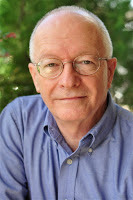 Henry’s debut novel, Journey to Riverbend, won the 2009 Operation First Novel contest.
Henry’s debut novel, Journey to Riverbend, won the 2009 Operation First Novel contest.Henry edits novels, leads critique groups, and teaches at conferences and workshops. He enjoys mentoring and coaching individual writers.
Connect with Henry on his BLOG, TWITTER and FACEBOOK.
March 23, 2021
The Most Valuable Writing Advice I’ve Ever Received

by DiAnn Mills @DiAnnMills
Writers develop their expertise over time and by penning millions of words—some of those words are outstanding and appear on the printed or digital page. Others face rejection either by us or another professional. But along the way, we read and hear writing advice meant to help us enhance our craft.
What is important for every successful writer to know and practice?
1. Writing is difficult. If the process of learning and application was easy, everyone would be a prolific writer.
2. Write with blinders. We can’t compare ourselves to other writers. That approach can result in defeat. We measure our progress according to what we put into it.
3. Write what you know, and if you don’t know about the topic—conduct accurate research.
4. Write with priorities. Examine your life and put importance in the proper order.
5. Write with the understanding quality writing is rewriting.
6. Write according to how our brains operate. We select or adjust techniques and methods after examining the masters.
7. Writing is spiritual; it’s true worship of the God who gave the gift.
8. Writing means taking a break and letting the manuscript “cook” in our minds. This allows for precious think time and evaluation.
9. Writing is reader-oriented. Period.
10.Writing is a daily practice of education in all areas of the publishing industry.
Recognize that how we each process information is determined by several factors.
Age
Health
Culture
Hobbies
Values
Wants and needs
Where we live
Why we write
Education
Personal interests
Personality
Spiritual beliefs
How long we’ve been writing
Life experiences
Family and friend support
And much more!
Whew! So I’m still committed to offering the best writing advice given to me beyond the 10 important items listed at the beginning of this post.
“Get it down. Take chances. It may be bad, but it’s the only way you can do anything good.” William Faulkner
My advice to you: “Learning the craft of writing, like any skill, is a lifelong experience. Embrace it. Crave it. Treasure it.” DiAnn Mills
What is your best writing advice?
TWEETABLEThe Most Valuable Writing Advice I've Ever Received - @DiAnnMills on @EdieMelson (Click to Tweet) DiAnn Mills is a bestselling author who believes her readers should expect an adventure. She creates action-packed, suspense-filled novels to thrill readers. Her titles have appeared on the CBA and ECPA bestseller lists; won two Christy Awards; and been finalists for the RITA, Daphne Du Maurier, Inspirational Readers’ Choice, and Carol award contests.
DiAnn Mills is a bestselling author who believes her readers should expect an adventure. She creates action-packed, suspense-filled novels to thrill readers. Her titles have appeared on the CBA and ECPA bestseller lists; won two Christy Awards; and been finalists for the RITA, Daphne Du Maurier, Inspirational Readers’ Choice, and Carol award contests. She is the director of the Blue Ridge Mountain Christian Writers Conference, Mountainside Marketing Retreat, and Mountainside Novelist Retreat with social media specialist Edie Melson. Connect here: DiAnnMills.com
March 22, 2021
6 Ways to Hone Your Writing, Develop Resilience, and Build Your Platform at the Same Time

by Sue Schlesman @SueSchlesman
As writers, we’re multi-taskers.
I’m not talking about our ability to make dinner, proof kids’ homework, and write a new chapter simultaneously, although we’ve probably all done that. I’m referring to the honed ability to persevere, get feedback, and recover from that feedback without hiding for a year while I half-heartedly tweak a manuscript I no longer believe I can finish.
Every writer should be engaged in regular mini-deadlines, mini-critiques, and mini-rejections because they make you a stronger, more resilient writer. It’s an awful process, but it’s important.
Here are six ways to hone your craft, develop resilience, and build your platform at the same time:
Enter writing contests. Winning is the obvious benefit: award stickers for promotion, titles for your bio, bragging rights. But not winning also benefits you because the entering process grows you as a writer. Whenever you enter a contest—whether for a writer’s conference, website, or periodical, you force yourself to study the genre, the site’s previously-published works, and the entry qualifications. Contests compel you to comply with regulations, just like agents and editors do. It’s good practice to enter contests, whether you win or not. Join a writer’s critique group. Critiques help everyone in a critique group, regardless of past writing experience. In just a short time, every participant can grow as a writer if he/she learns to accept and incorporate feedback. Healthy critiques build resilience, confidence, and know-how.Ask to guest-blog on someone else’s blog who has a similar style or focus as you. Bloggers love good guest bloggers because publishing a guest-blog means one less blog they have to write. Just study the blog’s content, length, and mission and write an article that adds value to the website. Then email your blog as an attachment to a kind email proposal. If accepted, you’ll broaden your audience by accessing theirs, and you’ll increase your presence on the worldwide web. Of course, include a short bio at the end of your article. This isn’t shameful self-promotion—it’s the win/win of guest-blogging. Participate in genre-specific submissions. Entering a flash-fiction, micro-fiction, poetry, or travel-writing contest or periodical submission deadline might be just what you need to hone your craft or attempt new writing genres. Putting yourself in situations where you have to write a complete story in 250 words or three poems that tackle a particular theme make you produce something under a pressurized situation. You’ll learn how to write within the confines of deadlines, word count, and other specifications that will eliminate lazy writing habits and fears of branching into other genres.Write for non-paying publications. You can find non-paying markets for poetry, devotions, fiction, travel, and other genres. Use Google or your Writer’s Guide and find markets that cater to new writers. The more you write and publish (even without pay), the more experience, exposure, and resilience you will develop.Find speaking venues. Regardless of your preferred writing genre, you can learn to speak and articulate your craft to an audience for a few important reasons: The style and skill of your writing is exposed when it’s read out loud. Reading aloud shows you where to edit. Speaking your writing gives you direct audience feedback, which is critical. None of us just write into the abyss. We either have a target audience that we hit, or we have an unknown audience that we don’t hit. You can teach a Bible study, read children’s literature to a classroom full of kids, submit editorials to the newspaper, lead a book study, conduct a Facebook live discussion, record a podcast, conduct a survey or interviews, or film a short video of yourself reading or teaching. Asking to speak takes guts—it’s a lot like pitching to agents and editors. Learn to pitch yourself to organizations and groups. People who buy books also buy the author; finding your speaking and interaction voice makes your writing ring true. Whatever genre you write, you must find a way to speak out your themes to an audience.Writing requires tenacity, grit, and determination. It also demands grace toward yourself and commitment to your calling. Even while you write your magnum opus, make time to develop the skill and resilience you’ll need to persevere through the next big writing challenge.
TWEETABLE
 Sue Schlesman is an award-winning author, speaker, blogger, English teacher, and president of Word Weavers Richmond. Her second book, Soulspeak: Praying Change into Unexpected Places, won a Selah Award in 2020. Sue was also a top-15 contributor at Crosswalk.com in 2020. Sue has a BA in Creative Writing and a Master’s in Theology & Culture. You can find her writing about life, education, and Jesus at sueschlesman.com.
Sue Schlesman is an award-winning author, speaker, blogger, English teacher, and president of Word Weavers Richmond. Her second book, Soulspeak: Praying Change into Unexpected Places, won a Selah Award in 2020. Sue was also a top-15 contributor at Crosswalk.com in 2020. Sue has a BA in Creative Writing and a Master’s in Theology & Culture. You can find her writing about life, education, and Jesus at sueschlesman.com.
March 21, 2021
4 Tips To Add Conflict to Your Story

by Ane Mulligan @AneMulligan
When I first tried my hand at writing a novel, I wrote a happy story where everyone was nice. There wasn't any conflict and very little tension. I had a lot to learn. I read articles and blog posts by seasoned authors, who said every story needs conflict.But what do you do if you don't write romance or suspense? How do you add conflict in historical or women's fiction? At least in historical, you have events that will add conflict for your characters. The lack of modern conveniences adds tension and conflict.
But let's say you're writing women's or general fiction. How do you add that conflict? I'm glad you ask, little scribe.
Tips to Add Conflict to Your Story1. Know your character. It took time for me to develop my character interview. At first it was very superficial. Finally, I read an article that said, "Don a journalist's hat and interview your character." Lightbulb moment! I now pass that to you. Don't stop at a surface interview; poke and prod the character until they give up their secrets. Keep asking, "Why?" until you discover the reason they act or react the way they do.
That's what makes them the way they are. Look for the lie they believe. Write a stream-of-consciousness back story for your character. Go as far back as you must to discover the answers to these questions: What do they want? This is the story goal for the character.What do they fear? What things, events, or people do they fear? Make sure you add those to the story. What secret are they hiding? Every POV character needs a secret they hide from everyone, maybe even from themselves. 2. Find their motivation. Once you know their secrets and lie, you should be able to discover their motivation. This is a vital key to plotting your story. Even if you are a seat-of-the-pants writer, you need to know this. It colors your character's worldview and is responsible for how they think and react to any situation. It's the WHY they want what they do.
3. What's the worst that could happen? Once you know what they fear, make sure it happens. What if it isn't the way you want the story to go? Then make the threat of it happening real. However, I highly suggest trying to weave it into the story. Besides, finding a save for the character could create a great plot point. Maggie's greatest fear in In High Cotton, was losing her son. I had to make it happen. I didn't want to, and it wrenched my heart. But it made the book so much better.
In my current WIP, I was brainstorming with critique partner Michelle Griep, and she reminded me of this tip by asking me that question. I told her what that was, and she wisely said, “Then that’s what has to happen.” Yikes! That was absolutely not in my plot. But guess what? It takes this story so much deeper! I love it when she makes me do what I preach.
4. Go one worse: Donald Maas teaches in his Writing the Breakout Novel, once you know what's the worst thing that could happen, go one worse for the character. That was a hard lesson for me to learn, but it worked. In my latest release, In High Cotton, reviewers have mentioned the suspense in the story. For this author, that's high praise, since I don't try for suspense only conflict.
If you've had trouble getting enough conflict or tension in your stories, try these 4 tips. Do you have any tips for me? How do you find your conflict?
TWEETABLE4 Tips to Add Conflict to your novel - @AneMulligan on @EdieMelson (Click to Tweet)
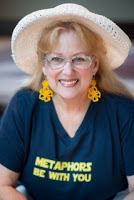 Ane Mulligan has been a voracious reader ever since her mom instilled within her a love of reading at age three, escaping into worlds otherwise unknown. But when Ane saw Mary Martin in PETER PAN, she was struck with a fever from which she never recovered—stage fever. She submerged herself in drama through high school and college. Years later, her two loves collided, and a bestselling, award-winning novelist emerged. She resides in Sugar Hill, GA, with her artist husband and a rascally Rottweiler. Find Ane on her website, Amazon Author page, Facebook, Twitter, Instagram, Pinterest and The Write Conversation.
Ane Mulligan has been a voracious reader ever since her mom instilled within her a love of reading at age three, escaping into worlds otherwise unknown. But when Ane saw Mary Martin in PETER PAN, she was struck with a fever from which she never recovered—stage fever. She submerged herself in drama through high school and college. Years later, her two loves collided, and a bestselling, award-winning novelist emerged. She resides in Sugar Hill, GA, with her artist husband and a rascally Rottweiler. Find Ane on her website, Amazon Author page, Facebook, Twitter, Instagram, Pinterest and The Write Conversation.
March 20, 2021
Don't Let Your Past Keep You from Your Future

by Edie Melson @EdieMelson
My friends, I don’t feel that I have already arrived. But I forget what is behind, and I struggle for what is ahead. I run toward the goal, so that I can win the prize of being called to heaven.This is the prize that God offers because of what Christ Jesus has done (Philippians 3:13-14 CEV).
Publishing is a tough business.
It’s almost impossible to write anything for public consumption without feeling like you’re throwing your heart into the lion’s den.And I don’t know about you, but I give negative comments a lot more credibility than the positive ones. The good ones I tend to disregard with the thought that the person commenting was just being nice.
Past rejections make it possible to shrivel up and die, at least as a writer. Feeding ourselves on what’s gone before forces us to a standstill. It’s easy to become overwhelmed with doubt, insecurity, and an almost overwhelming urge to give up.
Instead, we need to fill our minds with the affirmation that God sends our way.
I have two dusty scraps of paper that hang above my desk. One is from a critique partner. At the bot- tom of one of my pages she wrote several sentences, one of which told me she could see God in my writing.The other scrap is part of a note I received from one of my readers.
God sent me both of those messages when I was at a low point. He used them to renew my hope and assure me that He was using my words to touch others.
As writers, we must be careful who we let speak truth into our lives. If we give the enemy the power to tell us lies, we’ll find ourselves blocked and ineffective.
Instead, draw a line in the sand. Commit today, right now, to begin to live in the future, on the promises God has given you.
If you’re writing now, you know what I mean. You’ve heard that still, small voice call your name. You’ve gotten that confirmation you’ve asked for.
Now it’s time to move forward, believing God truly is big enough to make it happen. He doesn’t call us out, fully formed and ready. He calls us out when we’re weak—ready for Him to equip us.
Here's a prayer for those of us who are struggling to let go of the past.
Dear Lord, I have a memory problem. I remember negatives that I shouldn’t and forget positives that I should. Right now I can recall almost every negative remark ever said about my writing.Yet I have trouble remembering good comments.
Beyond that, my memory tends to rewrite history. It inflates and exaggerates the negative and minimizes the positive. I’m struggling to stay motivated and engaged because of this memory problem.
You are Lord of all—even my crazy thoughts. I know that You and You alone are able to help me. I need Your perspective and wisdom. I want to know honestly where I need to improve, but I also need to know what, and if, there’s anything good about the sentences and paragraphs I write.
I remember when I felt Your call to write. Assure me I didn’t imagine it or turn my selfish desires into a command from You. Help me recalibrate my faulty memory and sort out truth from fiction.
Sort through my mind and give me Your insight. I want to follow Your path with my writing, and I can only do that withYour illuminating truth. Amen.
TWEETABLE
Don't Let Your Past Keep You From Your Future - @EdieMelson (Click to Tweet)
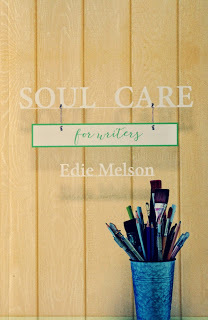 *This devotion and prayer are excerpts from
Soul Care for Writers
, from Bold Vision Books.
*This devotion and prayer are excerpts from
Soul Care for Writers
, from Bold Vision Books.Edie Melson is a woman of faith with ink-stained fingers observing life through the lens of her camera. No matter whether she’s talking to writers, entrepreneurs, or readers, her first advice is always “Find your voice, live your story.” As an author, blogger, and speaker she’s encouraged and challenged audiences across the country and around the world. Her numerous books reflect her passion to help others develop the strength of their God-given gifts and apply them to their lives.Connect with her on her website, through Facebook, Twitter and on Instagram.



